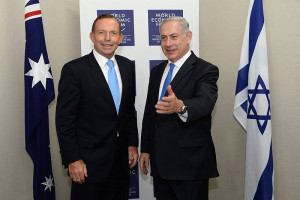The Australian government refuses to label east Jerusalem as “occupied territory,” signaling the current regime’s pro-Israel policy and a change from the previous administration.
In accordance with current Australian government policy, Attorney-General George Brandis asserted that the current administration does not consider the eastern section of the united capital of Jerusalem to be “occupied.”
On Wednesday, during a senate hearing, Greens Senator Lee Rhiannon repeatedly referred to east Jerusalem as occupied territory.
“The tendentious description that Senator Rhiannon is using … is not the descriptor that the government uses,” Brandis asserted. I don’t profess view on this matter. I’m merely correcting the use of a term…which prejudges the issue about which she inquires.”
Several senators demanded clarification on the government’s position. Independent Senator Nick Xenaphon, for instance, noted a “massive shift” in policy and ‘”an extraordinary and reckless departure from the bipartisan approach of the last 47 years.”
The next day, in a statement drafted in coordination with Foreign Affairs Minister Julie Bishop and Peter Varghese, secretary of the Department of Foreign Affairs and Trade, Brandis reinforced the message of support for Israel:
“The description of east Jerusalem as ‘occupied East Jerusalem’ is a term freighted with pejorative implications, which is neither appropriate nor useful. It should not and will not be the practice of the Australian government to describe areas of negotiation in such judgmental language.”

Australian Prime Minister Tony Abbott (L) meets with Israeli counterpart Benjamin Netanyahu in January during the annual meeting of the World Economic Forum in Davos. (Photo: Kobi Gideon/Flash 90)
As pointed out by The Guardian, Bishop’s predecessor, Bob Carr, “was a vocal critic of Jewish settlements, which opponents cite as a key obstacle to a future Palestinian state and a lasting peace agreement with Israel.”
In 1967, in the Six Day War – a war of defense against surrounding Arab nations bent on the destruction of the Jewish State – Israel liberated east Jerusalem and the ancient Jewish territory of Judea and Samaria, commonly referred to as the West Bank. Between 1948 and 1967, when east Jerusalem was under Jordanian rule, Jews were prohibited from visiting the holy sites.
This was not the first time that the current Australian regime had challenged commonplace opposition to Israel’s territorial rights. In January, in an interview with the Times of Israel, Bishop commented:
“I would like to see which international law has declared them [Jewish settlements] illegal.”
Australian Prime Minister Tony Abbott, while still leader of the Liberal opposition in December 2012, told Haaretz “that a government he leads will be unashamedly and unapologetically pro-Israel, akin to that of Stephen Harper’s Conservative Party.”
The statement that Australia does not consider east Jerusalem to be occupied territory was made exactly 47 years after the liberation of Jerusalem, which occurred on June 5, 1967.
Author: Atara Beck,
Staff Writer/Editor, United with Israel
Do You Love Israel? Make a Donation - Show Your Support!
Donate to vital charities that help protect Israeli citizens and inspire millions around the world to support Israel too!
Now more than ever, Israel needs your help to fight and win the war -- including on the battlefield of public opinion.
Antisemitism, anti-Israel bias and boycotts are out of control. Israel's enemies are inciting terror and violence against innocent Israelis and Jews around the world. Help us fight back!
